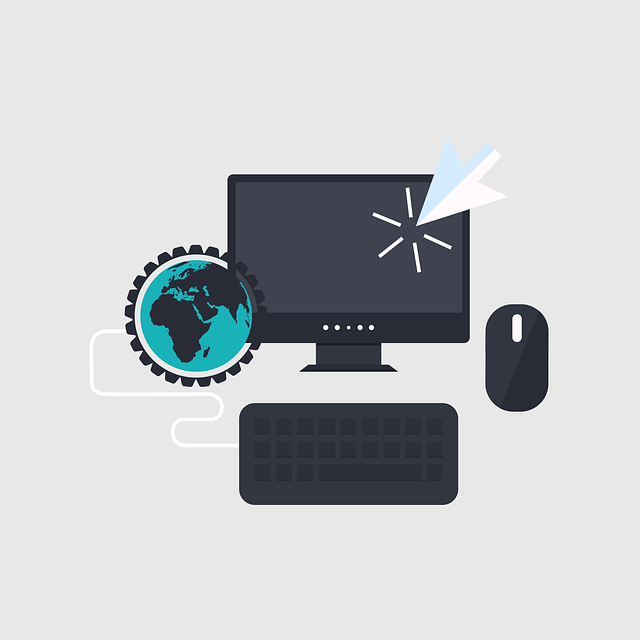AI automation is transforming talent acquisition and shift planning in the hospitality industry, especially restaurants. Machine learning algorithms streamline candidate sourcing, screening, and interview scheduling, benefiting businesses during peak seasons and staffing crises. In the digital age, AI optimizes staffing levels through data-driven insights, predicts staffing needs based on demand, fosters employee communication, and improves retention rates, making it a game-changer in efficient restaurant team management. Implementing AI tools enhances operational efficiency by learning from sales patterns, kitchen demand, and weather conditions, ultimately boosting revenue growth.
In today’s digital era, Artificial Intelligence (AI) is transforming various sectors, and talent acquisition is no exception. This article explores how AI automation can revolutionize business operations in restaurants by optimizing talent management. We delve into the benefits of AI automation in talent acquisition, focusing on improved team planning and retention strategies. Furthermore, we present practical tips on implementing AI shift planning tools to enhance restaurant management efficiency, ensuring optimal workforce deployment and employee satisfaction.
- Understanding AI Automation in Talent Acquisition: Benefits for Restaurant Businesses
- The Role of AI in Revolutionizing Restaurant Team Planning and Retention
- Implementing AI Shift Planning: Strategies for Effective Restaurant Management
Understanding AI Automation in Talent Acquisition: Benefits for Restaurant Businesses

AI automation in talent acquisition is transforming the way restaurant businesses approach staffing. By leveraging machine learning algorithms, these systems can streamline and optimize various stages of the hiring process, from candidate sourcing to initial screening and scheduling interviews. This technology offers numerous benefits, particularly for restaurants looking to manage peak seasons and unexpected staffing gaps.
One of the key advantages is the ability to quickly scan large pools of applicants, identifying top talent based on predefined criteria. AI can also automate repetitive tasks like sending out job ads, managing applications, and scheduling interviews, freeing up time for HR professionals to focus on strategic initiatives. Additionally, these tools provide data-driven insights into hiring trends and candidate preferences, enabling better decision-making for the restaurant’s long-term AI shift planning for teams.
The Role of AI in Revolutionizing Restaurant Team Planning and Retention

In today’s digital era, the restaurant industry is undergoing a significant transformation with the integration of Artificial Intelligence (AI) in talent acquisition and team management. AI has the potential to revolutionize shift planning for restaurant teams, ensuring optimal staffing levels and enhancing overall operational efficiency. By leveraging machine learning algorithms, AI systems can analyze vast amounts of data, including historical sales patterns, peak hours, and employee preferences, to create dynamic scheduling plans that minimize labor costs and maximize customer satisfaction.
This technology also plays a crucial role in improving retention rates by enabling personalized experiences for employees. AI-powered platforms can anticipate staffing needs based on predicted customer demand, allowing managers to proactively schedule shifts and prevent understaffing situations. Furthermore, these systems can facilitate open communication by providing channels for employees to express their preferences and availability, fostering a sense of involvement and appreciation within the workforce.
Implementing AI Shift Planning: Strategies for Effective Restaurant Management

Implementing AI in shift planning for restaurant teams can revolutionize operations and enhance efficiency. By leveraging machine learning algorithms, restaurant managers can optimize staffing levels based on historical data, peak hours, and predicted customer traffic. This ensures that restaurants are adequately staffed during busy periods while minimizing excess labor costs during slower times. AI systems can also consider individual employee preferences and skills, promoting a happier workforce.
Effective AI shift planning tools can learn from patterns in sales data, kitchen demand, and even weather conditions to predict future staffing needs accurately. Additionally, these systems facilitate seamless communication and scheduling, reducing the administrative burden on managers. With AI handling shift assignments, restaurant employees can focus more on providing excellent customer service, ultimately driving operational excellence and revenue growth.
AI automation in talent acquisition, particularly through advanced algorithms for AI shift planning, is transforming the way restaurants manage their workforce. By leveraging these tools, businesses can optimize team planning and retention, leading to increased operational efficiency and enhanced employee satisfaction. As the restaurant industry continues to evolve, adopting AI business talent acquisition automation will be key to staying competitive and meeting the demands of a dynamic market. Implementing AI shift planning strategies enables restaurant managers to make data-driven decisions, ensuring optimal staffing levels and minimizing turnover rates, ultimately fostering a productive and harmonious work environment.
